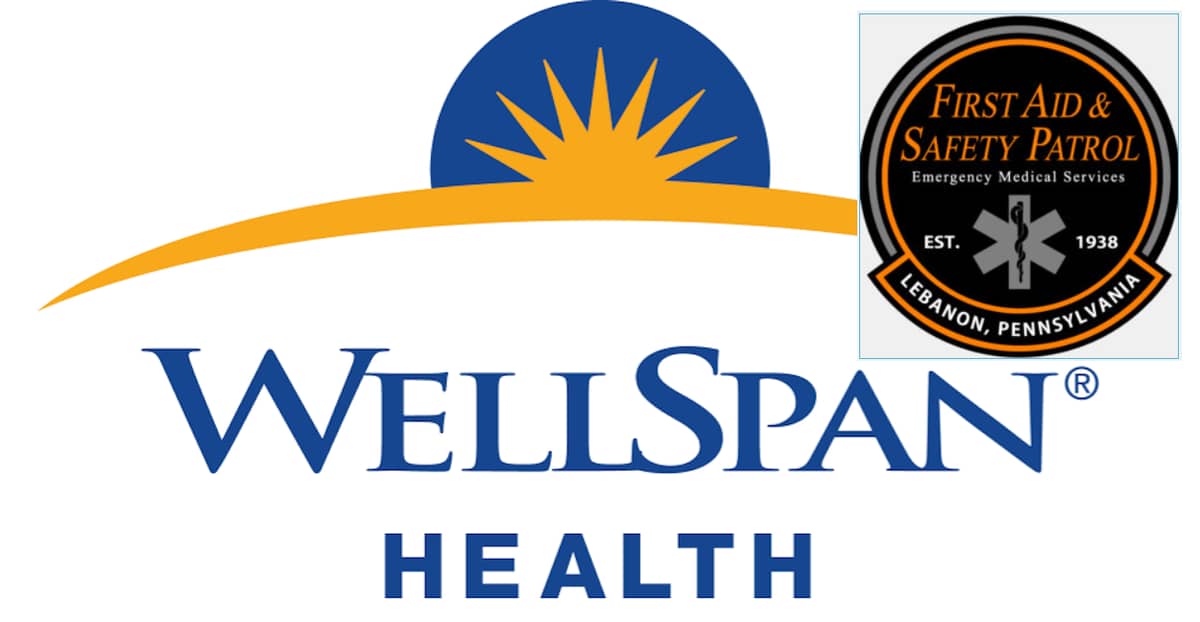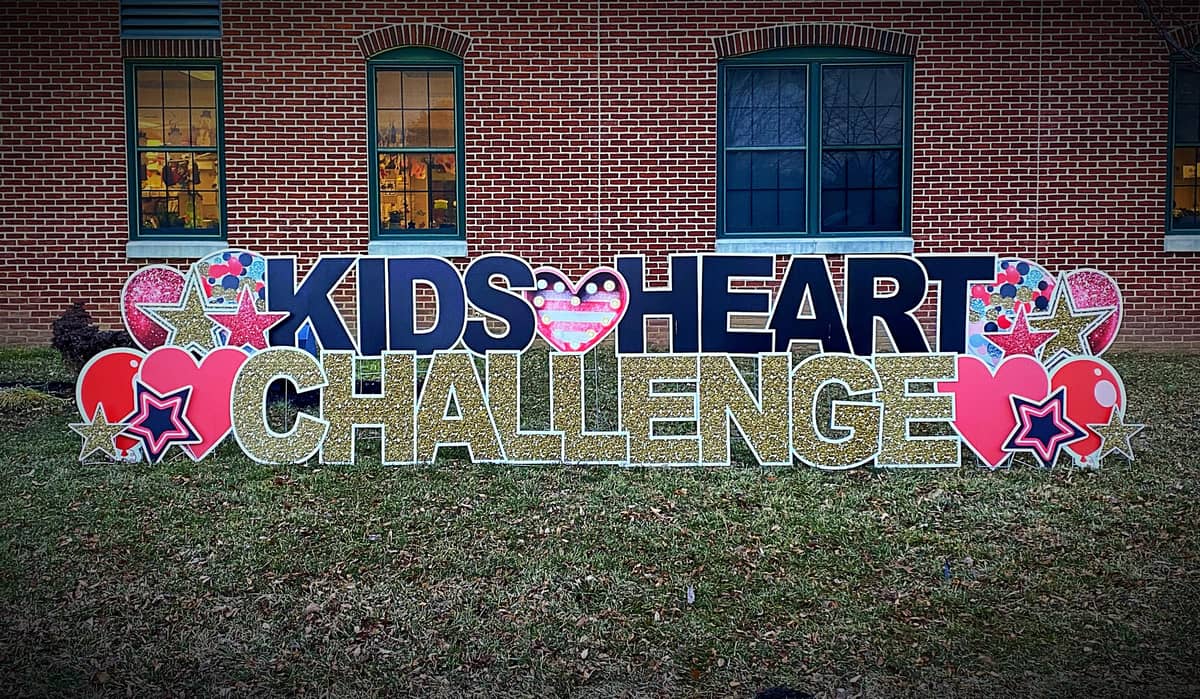No matter how good or necessary the care might be, hospital stays are rarely pleasant — and patients are usually eager to get home.
A hospital discharge, however, doesn’t necessarily mean a clean bill of health, and some patients might see their problems resurface. Sometimes, those recurrent medical issues could have been prevented — and that’s why WellSpan Health is partnering with First Aid & Safety Patrol to expand a program for at-home care.
“One of the things we’re focused on at WellSpan is getting patient’s back home as safely, but as quickly as possible,” Ryan Coyle, senior media relations manager for WellSpan Communications, told LebTown. “In many instances, this care model of receiving treatment in the comfort of your own home on the waning days of a hospital stay helps patients heal faster since they are back in their happy place at home and closer to loved-ones. However, in some instances patients may not qualify for this sort of care through their insurance. This program fills that gap.”
WellSpan recently awarded an Inspire grant to expand First Aid & Safety Patrol’s Community Paramedicine Program “as they are the ones that help provide that at-home care on the back end of a hospitalization,” Coyle explained in an email. “WellSpan grants are awarded for projects that help advance WellSpan’s community health initiatives for health-related community activities in our neighborhoods. Inspire grants support new projects, and help expand existing ones.”
Coyle said the grant was for one year’s service. “WellSpan does not disclose the dollar amount we provided,” he added.
Chris Krichten, senior director of Emergency Management and Pre-Hospital Services at WellSpan Health, said this “is a service that First Aid & Safety Patrol has been providing for a long time.”
“It benefits WellSpan in a very significant way. And it benefits our patients significantly,” Krichten said. “Some of these patients don’t benefit from home health agencies. For whatever reason, they don’t qualify for that care.”
Sometimes, he said, patients end up not being able to take care of themselves properly at home, “or they don’t understand the discharge instructions.” And that might lead to further health problems, which can put them right back in the hospital.
The Community Paramedicine Program “keeps that patient in their house and provides that care where they are comfortable,” Krichten said. “It keeps them out of the hospital … while still receiving full-service healthcare. So they don’t have to go back to the emergency room or the hospital.”
And that’s where First Aid & Safety Patrol comes in.
Preventing bounce-back
“Our role is providing followup care after discharge in the home for patients who typically don’t qualify for home healthcare, a visiting nurse or any other type of insurance-paid after care,” Kara Summers, chief of operations for First Aid & Safety Patrol, told LebTown.
First Aid & Safety Patrol is an emergency medical services agency based in Lebanon. First chartered in 1938 to provide care to city firefighters, the agency today employs more than 150 people for 24-hour-a-day service throughout Lebanon County.
“This started out as a means to prevent bounce-back patients to the hospital after a discharge with a diagnosis of sepsis,” she explained. “This started about nine years ago and was geared toward just sepsis patients at that time.”
Since then, Summers said, the program has expanded to include “other patient populations that are high utilizers of the hospital and who typically have readmissions within the first 30 days of discharge.” Mostly, she said, that means patients with chronic obstructive pulmonary disease (COPD), or asthma, heart failure or sepsis, which is the body’s extreme response to an infection.
“Typically what we do is we try to get into the home within the first 24 to 48 hours of discharge,” Summers said. That, she explained, is the main window of time during which a patient newly discharged from the hospital might start on the road to readmission.
“As they’re going through your discharge instructions, you’re really not paying attention,” she said. “People are getting home and they’re thinking of all the things they need to do … so they’re not necessarily getting their medications, not making followup doctor appointments. They’re dropping the ball. They’re sick still, and they end up being readmitted to the hospital.”
The visiting paramedic helps to make sure they got their meds filled, checks their vitals, and “makes sure that they are staying on track for being healthy.”
Patients aren’t billed
As much as the program is a benefit to the patients, Summers said it also reduces the load on hospitals and EMS providers.
Although the Community Paramedicine Program serves solely Lebanon County, Summers said other communities have started similar programs. “It’s becoming more of a national trend to fill gaps in healthcare,” she said. Getting insurance companies to recognize the benefit — and provide coverage for the service — is “still a work in process,” she added.
Patients, Summers noted, never receive a bill for the service. In years past, she said, First Aid & Safety Patrol ate the cost of providing the extra care. Now, WellSpan is lending some financial assistance.
“The partnership and grant is what makes it work,” she said. “The grant is a flat rate that covers the year. … It’s not a bill-by-visit scenario. No matter what we do, it’s covered under that one rate.”
Currently, Summers said, the agency has one state-certified paramedic providing the service throughout the county. “He has not been overwhelmed at this point,” she said.
Usually he handles two or three patients a week, she said, although some patients require as many as three visits per day so medications can be administered.
Most of their patients these days suffered a heart failure, she added.
As needed, Krichten noted, the paramedic can communicate with a WellSpan physician, nurse practitioner or other staff member to consult on a patient’s condition.
He said WellSpan has already expanded the program to provide two community paramedics in its York County service area, and they’re expanding into northern Lancaster County.
Krichten said some insurance providers “are starting to recognize this as a needed service” but, despite a decade or two of proven success, “it’s still not a covered service.”
“Will they do it? I don’t know. It’s difficult to get them to pick up anything new,” he said. “Do they recognize it as a need? Sure they do. … Obviously, we’re keeping patients out of the hospital.”
Questions about this story? Suggestions for a future LebTown article? Reach our newsroom using this contact form and we’ll do our best to get back to you.

Keep local news strong.
Cancel anytime.
Monthly Subscription
🌟 Annual Subscription
- Still no paywall!
- Fewer ads
- Exclusive events and emails
- All monthly benefits
- Most popular option
- Make a bigger impact
Already a member? Log in here to hide these messages
While other local news outlets are shrinking, LebTown is growing. Help us continue expanding our coverage of Lebanon County with a monthly or annual membership, or support our work with a one-time contribution. Every dollar goes directly toward local reporting. Cancel anytime.























